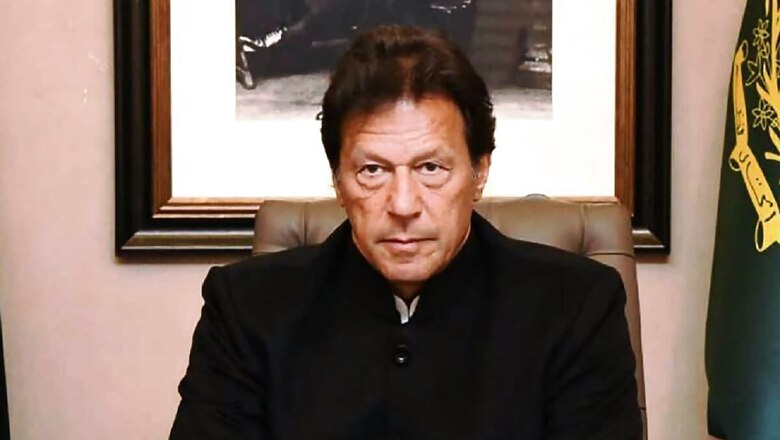
views
London: The compliance count that the Financial Action Task Force (FATF) awards at intervals to Pakistan has come to sound deceptively like a headmaster’s exercise. In February, the FATF said Pakistan had taken required steps on only 14 of the 27 requirements of it to convince the world that it was acting effectively against financing terrorism and money laundering. In October, the FATF is giving Pakistan 21 ‘marks’ out of 27.
Pakistan has been asked to demonstrate full compliance by the next FATF plenary due in February 2021. Pakistan’s progress on the ‘mark sheet’ may suggest that given the rising graph, it could well get full marks in a few months’ time, which is to say the world watchdog would be convinced after due inspection and investigation that Pakistan and its agencies support terrorism no more.
A closer look at the mark sheet would suggest that any such optimism is most likely misplaced. Just ahead of the FATF meeting in February this year, Pakistan announced the arrest of Hafiz Saeed. A month ahead of it, Pakistan passed a raft of laws intended to appease the FATF, undoubtedly on the advice of its new advisers in Houston. The move did get Pakistan marks.
The FATF notes that Pakistan has taken steps to “identify and sanction illegal MVTS”, by which it means money or value transfer services, hawala essentially. Pakistan has “implemented cross-border currency and BNI (Bearer Negotiable Instruments) controls,” meaning payments in kind rather than cash.
Pakistan has also improved “international cooperation in terrorist financing cases, passing amendments to the ATA (Anti-Terrorism Act) to increase the sanctioning authority, financial institutions implementing targeted financial sanctions and applying sanctions for AML/CFT violations and controlling facilities and services owned or controlled by designated persons and entities.”
The limitations here would seem self-evident. A watch on hawala transactions and payments in kind could be of some domestic advantage, and is being widely criticised within Pakistan for targeting opposition groups. The other steps are legislative, and not in themselves guarantee that they are being implemented. None of these is inhibiting backing of terrorist activity within India. But Pakistan does get marks on these because these were steps it was advised to take.
More Than Half Empty
That does not make the glass half-full, never mind anything like three-quarters full. The six counts on which Pakistan has not moved are the six that really matter. FATF president Marcus Pleyer pointed out at the end of the plenary that what remains to be done amounts to “serious deficiencies”.
The FATF has spelt out four of these remaining requirements specifically:
1. “Demonstrating that law enforcement agencies are identifying and investigating the widest range of TF activity and that TF investigations and prosecutions target designated persons and entities, and those acting on behalf or at the direction of the designated persons or entities.” That is to say, the FATF says that Pakistan has not been investigating terrorist financing fully. Nor aiming these actions where they need to be aimed.
2. “Demonstrating that TF prosecutions result in effective, proportionate and dissuasive sanctions.” The FATF does not therefore consider that actions claimed to have been taken are effective enough or strong enough to stop those engaged in terror financing.
3. “Demonstrating effective implementation of targeted financial sanctions against all 1267 and 1373 designated terrorists and those acting for or on their behalf, preventing the raising and moving of funds including in relation to NPOs (non-profit organisations) identifying and freezing assets, and prohibiting access to funds and financial services.” Most significantly the FATF here says that Pakistan is not doing enough against designated terrorists, and their emerging proxies.
4. “Demonstrating enforcement against TFS violations, including in relation to NPOs, of administrative and criminal penalties and provincial and federal authorities cooperating on enforcement cases.” That means quite simply that Pakistan is not moving with demonstrable firmness against groups such as Jaish-e-Mohammed and Lashkar-e-Toiba, because it’s groups like these that are categorised, politely, as Non-Profit Organisations (NPOs).
The deadline for taking these had expired already in February of this year. The FATF said then that “all deadlines in the action plan have expired.” In its official statement on October 23 maintaining Pakistan on the grey list, the FATF declared that “all action plan deadlines have expired”. That is not a copy and paste statement only to the extent that in February of this year the FATF said that “all deadlines in the action plan have expired.” A phraseological and not a substantive shift in its observation that Pakistan has not done enough, and that the deadline for that is now further gone than it was earlier.
Not everyone is optimistic that Pakistan will do all this by February 2021. If it doesn’t, the FATF will no doubt remind it yet again that all deadlines have expired.
Read all the Latest News and Breaking News here




















Comments
0 comment